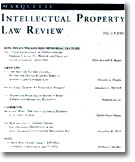Wisconsin Supreme Court Accepts Three New Cases, Including a Case That Will Determine Whether a Crime with No Sexual Component May Trigger Sex Offender Registration Requirements
 Today the Wisconsin Supreme Court accepted three new cases for review, two criminal cases and one civil case.
Today the Wisconsin Supreme Court accepted three new cases for review, two criminal cases and one civil case.
One of the criminal cases, State v. Smith, 2008AP1011, asks the court to determine whether the sex offender registration statute, Wisconsin Statute section 301.45, is unconstitutional in its application to a defendant whose crime, false imprisonment of a minor, concededly had no sexual component whatsoever. The Defendant Smith was convicted of falsely imprisoning a minor in connection with a drug crime. That conviction triggered application of the sex offender registration requirements in section 301.45. Smith did not register, and was charged with failing to register as required. He argues that the sex offender registration requirement violates his due process and equal protection rights because his crime had no sexual component.


